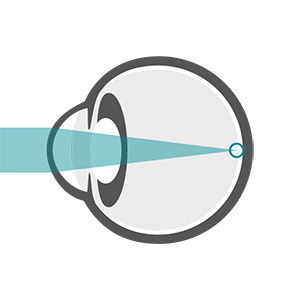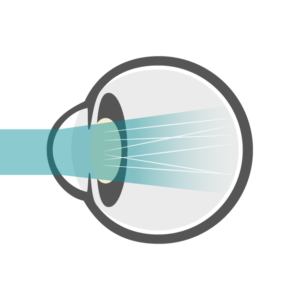Cataracts
Having cataracts represents a once in a lifetime opportunity to discover the vision you’ve always imagined.
At Southern Eye Center, our cataract team will customize a plan focused on helping you achieve the optimal visual outcome based on your individual goals and lifestyle and maximize your independence.
The most sophisticated and advanced technology solutions to restore and enhance vision are available at Southern Eye Center. Our advanced options include high technology lens implants designed to help you see up close, at distance, and in between, laser-assisted cataract removal, lenses designed to correct astigmatism and other custom packages to help provide you with the vision you’re seeking.
At Southern Eye Center, it is not just your final visual outcome that matters. We want your entire experience to be comfortable, educational, and positive.
Our surgeons and patient care team are not only great listeners, but are here to make you feel comfortable and confident, knowing that you have made the right choice in selecting the best surgeons in the best facilities anywhere in the United States to have your cataracts removed and your vision restored. Our goal is to help you achieve the best vision you may have experienced at any time in your life.
What is a Cataract?
A cataract is a clouding of the eye’s natural lens. The lens of your eye is located just behind the cornea (the front window of the eye), and behind the iris (the colored part of the eye).
A cataract is a natural part of the normal aging process. Most people will develop cataracts at some point in their lives. If you are experiencing poor vision due to cataracts, it’s okay! We can help you restore your vision.
Cataracts also occur due to:
- Trauma
- The use of certain medications
- Genetic factors
- Exposure to the sun’s rays
- Smoking
- The presence of certain systemic illnesses such as diabetes and glaucoma
As cataracts develop you’ll notice hazy vision; you may also find you have increasing night time glare, poor night vision, and colors appearing less vibrant.
Cataracts are typically found in people over the age of 50. Nearly half of all people in the United States will experience cataracts by age 65, and by age 75, nearly all Americans will have at least some cataracts developing in one or both eyes.
Once a cataract has begun to develop, changes in your eyeglass prescription may improve vision for a period of time and cataract removal may not be immediately necessary. When your ability to read, drive, or perform your everyday routine is inhibited by your vision, a cataract procedure may be your best solution. Removing the cataract is the only way to halt the progression of cloudy vision and restore and enhance your vision.
Youthful Eye
When we are young, light is able to enter clearly through the cornea and focus correctly on the back of the retina.
Eye with Cataracts
As we age, our corneas yellow and harden, making it more difficult for light to enter and focus on the retina.
Symptoms of Cataracts
Cataracts can develop slowly or they may develop rapidly. Each person’s experience is unique. Sophisticated exam techniques and measurements that our surgeons and staff perform serve to confirm the presence of a cataract and how significantly your vision is affected.
Typical symptoms that you may experience if you have cataracts include but are not limited to:
- Blurred, hazy, or cloudy vision
- A fading of colors, or colors that may appear substantially less bright, distinct, or vibrant
- Glare, halos, or a “starburst effect” in the presence of bright lights, such as headlights
- Difficulty reading and seeing fine detail, such as putting on makeup or threading a fish hook
- A need for brighter light to read or see other fine details
- The need for frequent changes in your eyeglass prescription in an attempt to improve vision
The causes of decreased vision are many and varied. Decreased vision can even result from having dry eyes or eyes that tear excessively.
If you are experiencing any of the symptoms or any other changes in your vision or the comfort or appearance of your eyes, call Southern Eye Center and schedule an evaluation with one of our physicians. We will determine the reasons for your decreased vision and develop a plan for you to see and feel your best.




